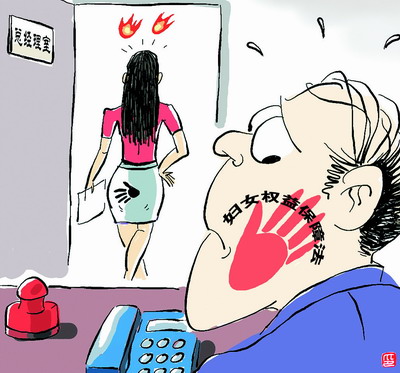In the hands of the wrong person, power can be dangerous. That's especially the case in the workplace, where the abuse of power can lead to sexual harassment.
Issues of power, workplace culture and the interpretation of verbal and non-verbal communication associated with sexual harassment were the focus of a study by Debbie Dougherty, assistant professor of communication in the College of Arts and Science at the University of Missouri-Columbia. Working with a large healthcare organization in the Midwest, Dougherty examined the question: why does sexual harassment occur?

"Power," she said. "It was the common answer. It came up repeatedly. However, what I found were multiple definitions of power."
Those definitions varied by gender. Dougherty's assessment was based on the opinions and perceptions of 23 participants (11 women and 12 men) representing a range of hierarchical levels and job types within the healthcare organization. The average participant¿s age was 38, and each participant had been employed by the company an average of seven years. None were doctors. After being placed in discussion groups, they openly discussed sexual harassment and confirmed what some researchers have argued - sexual harassment is more about power than sex, Dougherty said. In fact, moderators never asked participants to address the issue of power.
The findings indicate that:
- For men, power comes from formal authority, and they view sexual harassers as primarily managers and supervisors. "I have power, so I sexually harass," Dougherty said, citing a reason for such actions. Men acknowledged that coworkers could sexually harass one another, but co-worker harassment was mainly seen as a "misunderstanding."
- Women view power in a more complex manner; formal authority is but one dimension in male-dominated workplaces. Power to women is a negotiated process between the harasser and harassed. Dougherty said women often perceive all members of an organization as possible harassers - thinking it can be initiated by any person who is perceived as having power.
- There is a discrepancy regarding the types of actions, behavior and communication that men and women consider sexually offensive. They also differ in their views of how power in the workplace can contribute to sexual harassment. In the study, the participants never recognized that they defined power differently, Dougherty said.
"The fact that men and women were using the same word to describe different behaviors may contribute to the continued existence of sexual harassment," she said. "So if a man thinks that sexual harassment only comes from a supervisor, he may feel free to make sexual comments to a female coworker. The female coworker is likely to see the sexual comments as a quest for power and label it as sexual harassment."
Dougherty said the data underscores the importance of sexual harassment training.
The study, "Gendered Constructions of Power During Discourse About Sexual Harassment: Negotiating Competing Meanings," was published in Sex Roles.






Comments